Prof apl. Professor Dr iur Dr rer pol Sanden, Leuphana University, Germany,has been invited by CRoLS to speak about:
Dignity as a Pivotal Legal concept in Human Rights?
EB303
Tuesday 08-03-2016
Start: 12:00 Finish: 13:00
Latest research and knowledge exchange news at Bournemouth University
Prof apl. Professor Dr iur Dr rer pol Sanden, Leuphana University, Germany,has been invited by CRoLS to speak about:
Dignity as a Pivotal Legal concept in Human Rights?
EB303
Tuesday 08-03-2016
Start: 12:00 Finish: 13:00
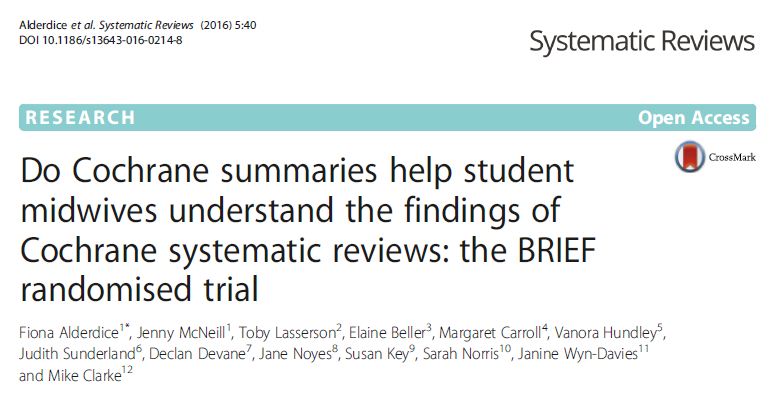 This first week of March has been a good week for FHSS publications. On March 1st CMMPH Prof. Vanora Hundley published her collaborative paper ‘Do Cochrane summaries help student midwives understand the findings of Cochrane systematic reviews: the BRIEF randomised trial’.[1] With colleagues based across the UK and Ireland she surveyed over 800 midwifery students at nine universities. This results of the study can be found in the journal Systematic Reviews. This is a Gold Open Access journals, hence the paper is freely available for anybody to read across the globe. To read this paper click here!
This first week of March has been a good week for FHSS publications. On March 1st CMMPH Prof. Vanora Hundley published her collaborative paper ‘Do Cochrane summaries help student midwives understand the findings of Cochrane systematic reviews: the BRIEF randomised trial’.[1] With colleagues based across the UK and Ireland she surveyed over 800 midwifery students at nine universities. This results of the study can be found in the journal Systematic Reviews. This is a Gold Open Access journals, hence the paper is freely available for anybody to read across the globe. To read this paper click here!
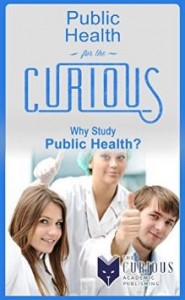 The second FHSS publication is a chapter in a Kindle book on the Importance of public health in low- and middle- income countries, written by Dr. Puspa Raj Pant,CMMPH’s Prof. Edwin van Teijlingen, and BU Visiting Faculty Prof. Padam Simkhada.[2] Padam Simkhada is Professor of International Public Health and Associate Dean (Global Engagement) for the Faculty of Education, Health and Community at Liverpool John Moores University. The chapter is part of the Kindle book with the long title: Public Health for the Curious: Why Study Public Health? (A Decision-Making Guide to College Major, Research & Scholarships, and Career Success for the College Students and Their Parents) edited by Richard Lee Skolnik from Yale University, USA.
The second FHSS publication is a chapter in a Kindle book on the Importance of public health in low- and middle- income countries, written by Dr. Puspa Raj Pant,CMMPH’s Prof. Edwin van Teijlingen, and BU Visiting Faculty Prof. Padam Simkhada.[2] Padam Simkhada is Professor of International Public Health and Associate Dean (Global Engagement) for the Faculty of Education, Health and Community at Liverpool John Moores University. The chapter is part of the Kindle book with the long title: Public Health for the Curious: Why Study Public Health? (A Decision-Making Guide to College Major, Research & Scholarships, and Career Success for the College Students and Their Parents) edited by Richard Lee Skolnik from Yale University, USA.
The third paper is by FHSS PhD student Clare Farrance with her supervisors Dr. Fotini Tsofliou and Dr. Carol Clark. This systematic review ‘Adherence to community based group exercise interventions for older people: A mixed-methods systematic review’ assessed the views and adherence of older participants attending community-based exercise programmes of over six-months duration. Reporting that evidence is still very limited, although the preliminary limited evidence is positive regarding long-term adherence rates. This paper is also Open Access, funded by BU’s Open Access fund.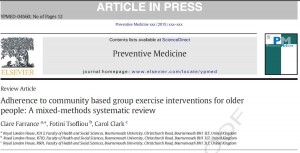
Prof. Edwin van Teijlingen
CMMPH
References:
Below is a list of committee inquiries with current open calls for evidence. Please contact Emma Bambury-Whitton if you would like to discuss submitting evidence.
Commons Select Committee inquiries
Lords Select Committee inquiries
Joint Committee inquiries
Monday
TEF
The BIS select committee has published its report on The Teaching Excellence Framework: Assessing quality in Higher Education following its recent inquiry. The report recommends that government should provide further detail on the balance between qualitative and quantitative assessment in the TEF. The report also supports the principle of linking differentiated levels between teaching quality and fee level. The report argues that the quality assurance of universities should remain administratively and visibly independent from Government or the new regulator.
Higher Education Bill
The government looks set to introduce a higher education bill, possibly following a White Paper in May, with David Cameron said to be convinced of the need for legislation. Higher education bill ‘odds-on’ after Cameron backs legislation. (THE).
EU Referendum
The Observer has looked at how a Brexit would affect different aspects of society, including HE and research. What would Brexit mean for everyday life in the UK? (The Guardian).
Tuesday
Widening Participation
An article in the Guardian HE network looks at why white working class boys are put off going to university. The article reveals that the large amount of debt they will have is the main reason which is putting them off considering university. What puts working class boys off university? (Guardian Higher Education Network).
Wednesday
EU Students
The government is to make it harder for students from other European Union countries to get financial support for their living costs in England by extending UK residency requirements from three years to five years.
Crackdown on EU students’ support funding (BBC).
Thursday
Women in Higher Education
Many more women are taking leadership positions in universities but still remain heavily outnumbered by men in higher education’s top jobs. More women in senior university jobs, says report (THE).
Friday
International Students
Vivienne Stern, Director of the International Unit, writes for WonkHE about the strengths and weaknesses of the UK HE system from the perspective of international students. We need to keep the UK’s competitive advantage (WonkHE).
Religion at Universities
It has been reported that Jewish students are avoiding universities due to perceived growing campus anti-Semitism. We cannot allow British universities to become bastions of religious segregation (Telegraph).
EU Referendum update
On 15 April the official “referendum period” begins and campaigning limits and restrictions are put in place. The EU Referendum Act also compelled the Government to publish two reports by this date. The first, setting out the renegotiation outcomes and the Government’s opinion of it, was published last week. The second requires the Government to publish a report setting out the rights and obligations of UK citizens as members of the EU and provide examples detailing the arrangements of European countries that are not in the EU.
Purdah begins on 27 May. After this date, publically funded institutions are not able to publish any information promoting a view point on the referendum or the issues associated with it. This covers Westminster and Devolved ministers and departments and local authorities.
The BBC are televising three live debates on 19 May, 15 June and 21 June with the referendum taking place on 23 June. Results will be announced on 24 June.
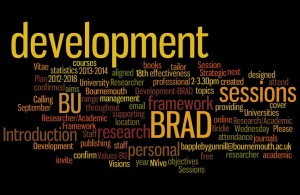 Just to advise you details of our next BU Researcher/Academic Development (BRAD) events programme will be coming out very soon….watch out for our announcements on the Research BLOG and BU Intranet and get yourself booked in via Organisational Development.
Just to advise you details of our next BU Researcher/Academic Development (BRAD) events programme will be coming out very soon….watch out for our announcements on the Research BLOG and BU Intranet and get yourself booked in via Organisational Development.
BRAD sessions be held from the 4th of April – 11th of April 2016.
Pop these dates in your calendars and get ready!
 It’s with great pleasure that we invite you to submit an abstract to a special track on “Lifestyle and communities: sharing in the digital era” of the ATLAS annual conference. It will take place in Canterbury, Kent, UK, 14th-16th September 2016.
It’s with great pleasure that we invite you to submit an abstract to a special track on “Lifestyle and communities: sharing in the digital era” of the ATLAS annual conference. It will take place in Canterbury, Kent, UK, 14th-16th September 2016.
Please see below for details, or click here… and share!
Led by: Lenia Marques, Jules Hecquet and Dimitrios Buhalis (Bournemouth University, UK)
Supported by: ETourism Lab
The leisure and tourism landscape has been subject to rapid changes in a world where internet and technologies have contributed to shape experiences, relationships, practices and lifestyles. In the network society, the sense of community is also varied and we can interrogate different meanings, values and practices at the heart of changing social interactions. The boundaries between online and offline communities seem to be blurred and they present new societal challenges, which also affect the industry, namely with sharing economy / collaborative consumption practices and communities (such as AirBnB, Uber, Couchsurfing, Meetup, Mealsharing, etc.).
The causes and consequences of such platforms in terms of lifestyle and the sense of community is yet to be studied. Therefore, we welcome papers which may explore, but are not limited to, the following themes:
The convenors are looking at possibilities for publication.
For more details, click here or contact Dr Lenia Marques, lmarques@bournemouth.ac.uk .
http://www.atlas-euro.org/event_2016_canterbury/tabid/248/language/en-US/Default.aspx#track6
*Image courtesy of Stuart Miles at FreeDigitalPhotos.net
New opportunity for your students to contribute to environmental, economic and social sustainability
As part of helping our students to make a difference to the world, BU has signed up to an NUS initiative called Dissertations for Good (DfG). The initiative connects students with external organisations who then work collaboratively to complete research projects into social, economic and environmental sustainability. The outcome is a piece of student work that contributes in a tangible way, a report that is useful for their partnered organisation and a project that forms their dissertation.
DfG helps students to improve their communication, interpersonal, problem-solving and organisation skills, as well as developing their ability to use their initiative and self-motivate. It also provides valuable CV-enhancing experience of working in the outside world.
All students looking to undertake a research project at BU can register at www.nus.org.uk/dfg and create a profile. This allows them to search the organisations participating in DfG. They then request to be partnered with the organisation and organise a planning meeting. The student, their supervisor and a representative from the partner organisation meet to discuss the project and work together to make the project a success.
Details will be circulated to students via the portal. We shall be monitoring and will seek to evaluate engagement.
Are you involved in research around the topic of food?
We are looking for anyone interested in running a food related activity at the Christchurch Food Festival as part of our “Festival of Learning on Tour”. We have a stool booked at the Family Fun day on Sunday 8th May where we’d like to run some food related research activities that families, children, members of the public could get involved with when passing by.
Could this be of interest to you? If so please contact Katie Breadmore (kbreadmore@bournemouth.ac.uk/ 61356)
The EBC hosted the second in a series of ‘Meet the Entrepreneur’ events on Wednesday 2nd March.
This seminar featured Peter Czapp, co-founder of The Wow Company, a proactive accountancy practice that advises small creative businesses across the UK. Peter and his team are committed to helping their clients make more profit and pay less tax, whilst at the same time having more fun.
The event attracted staff and students from across the University and they heard Peter share his experiences as an entrepreneur and the valuable insights and lessons he has learned along the way.
Organised by Mark Painter, Business Development Manager for The Business School, this series of events aim to provide students and staff the opportunity to hear about the personal journey of the profiled entrepreneur, learn about their experiences as a business owner and their approach to founding and growing a successful business.
Mark Painter said, ‘as one of our valued Entrepreneurs in Residence I am delighted that Peter has been able to visit us and share his experiences’. Mark added, ‘during his presentation Peter stressed the importance of being focussed, clearly defining your targets, and doing the tasks that really matter – something for us all to think about, regardless of our own personal goals and ambitions.’
The next event in this series will be on Wednesday 20th April and will profile Simon Phelps, founder of Fluvial Innovations Ltd. For more information and to book a place, stuents and staff should follow the link to www.bucfe.com/events
Students and staff from the Department of Events & Leisure in the Faculty of Management recently attended an exclusive charity reception hosted by the Fastforward15 mentor programme at Basement at The London Edition, where more than £3,500 was raised, with proceeds going to Newlife Foundation, The Prince’s Trust and The Clink.
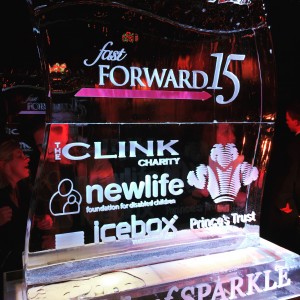
The Fast Forward 15 mentoring programme is a not for profit initiative spanning the events, hospitality and related industry providers, giving access to and insight from some of the leaders in these fields; an inspiring portfolio of influential and select talent who are willing to share their knowledge and experience with budding stars of the future. Fastforward15 founder and MD of Zibrant Fay Sharpe was on hand to support the charity event and took the time to meet with the students and encourage applications from our students.
Final year events management students Kateryna Spivek, Kathleen McLoughlin, Daisy Collins and Freya Hill attended along with Department of Events & Leisure staff Dr Debbie Sadd & Dr Mary Beth Gouthro. The students were impressed to not only meet course alumni as FastForward15 mentees, Hannah Coleman and Lauren Glynn, but got to network with other course graduates who are currently established in the industry, eg Chris Middleton of Cievents, Katie Frettingham of Live Union and Laura Dennett of Zibrant.
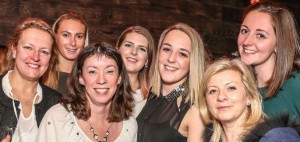
Freya Hill, final year student said ‘a Night of Sparkle was a fantastic chance to meet people in all areas of the events industry – be it agency or in house. Each person I spoke to had a different perspective on the importance of events education – a topic also relevant to my dissertation. It was particularly inspiring to speak to BU grads and current Fast Forward 15 mentees and to hear of the many opportunities they have been given thanks to their degree as well as the fast forward 15 programme and their mentors’.
Student Kathleen McLoughlin also added ‘…from what we saw and from who I had a chance to speak to, the scheme has opened many doors for the mentees and they have accomplished so much in their year with their mentors. It was an honour to speak to Fay Sharpe herself, a very influential woman who has inspired me to apply for the scheme to aim for success!’
Fundraising activities on the night included a jewellery sale courtesy of Newlife, while raffle prizes were donated by firms including All About Flights, Green Route Africa, One & Only Cape Town, MICEBOOK and The Savoy. Following the success of its inaugural year, Fast Forward 15 is returning for 2016, offering 15 new mentees the opportunity to be  of the programme. Applications recently closed and the events management course in the Faculty of Management has some hopeful applications in the mix. The Fastforward15 graduation and instalment of new mentees takes place at the Langham Hotel in London at the end of April.
of the programme. Applications recently closed and the events management course in the Faculty of Management has some hopeful applications in the mix. The Fastforward15 graduation and instalment of new mentees takes place at the Langham Hotel in London at the end of April.
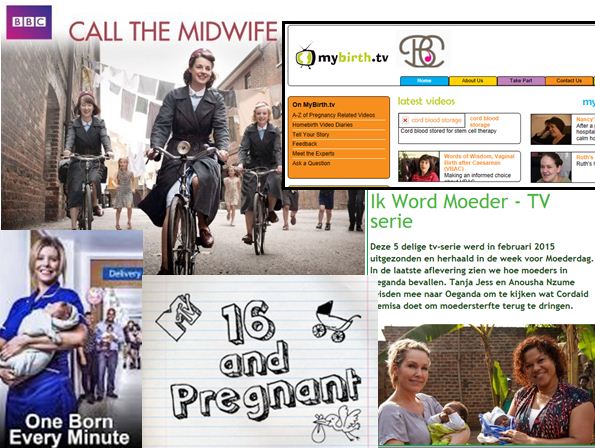
Today saw the publication “Is it realistic?” the portrayal of pregnancy and childbirth in the media, a paper which is truly interdisciplinary, both in terms of its authorship as well as its topics[1]. The lead-author, Dr. Ann Luce is based in the Faculty of Media & Communication, whilst her BU co-authors Dr. Catherine Angell, Prof. Vanora Hundley, Prof. Edwin van Teijlingen and Dr. Marylin Cash are all associated with the Faculty of Health & Social Sciences. Prof. Helen Cheyne, the only non-BU co-author, is based at the University of Stirling.
The paper is a scoping review to assess the influence media have on pregnant women. Much of the academic literature discusses the influence of (reality) television, which often portrays birth as risky, dramatic and painful. Although many claim that the portrayal of childbirth has a negative effect on society, there is little research evidence to support this claim. It has been suggested that women seek out such programmes to help understand what could happen during the birth because there is a cultural void through the increasing anticipation of negative outcomes. However the impact that has on normal birth has not been explored. Our paper highlighted three key themes: (a) the medicalisation of childbirth; (b) women using media to learn about childbirth; and (c) birth as a missing everyday life event. The key conclusions are the media appear to influence how women engage with childbirth. The dramatic television portrayal of birth may perpetuate the medicalisation of childbirth, and last, but not least, portrayals of normal birth are often missing in the popular media. Hence midwives need to engage with television producers to improve the representation of midwifery and maternity in the media.
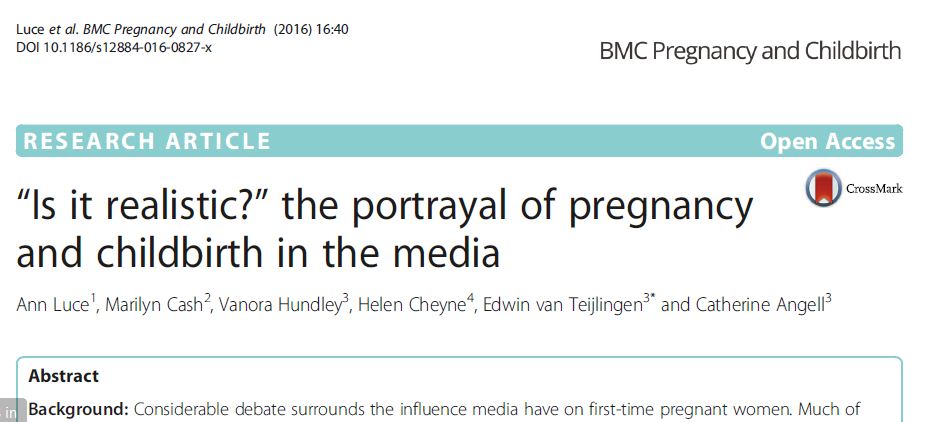
BMC Pregnancy and Childbirth is an Open Access journal so our paper is freely available to researchers, journalists, childbirth activists as well as pregnant women anywhere in the world. This paper builds on a growing number of academic papers published by staff in the Centre for Midwifery, Maternal & Perinatal Health (CMMPH) on the role the media play in health and midwifery, both in the UK [2-3] and in Nepal [4-6].
Prof. Edwin van Teijlingen
CMMPH
References:
Hello !
14:live will be returning on the 17th of March 14:00-14:45 in the Poole House Refectory. This is open to all staff and students and I am pleased to welcome DR James Gavin.
Regardless of age, the benefits of climbing stairs are numerous. This month’s talk will explore the impact of stair climbing on people’s physical function and cardiovascular fitness. Across the lifespan vigorous physical activity can maintain one’s health, fitness and functional mobility. However, the importance of physical function is often overlooked, and becomes essential for mobility after injury and with ageing.
Stair climbing not only benefits cardiovascular health, but also: leg strength, postural stability, balance and sensory awareness. The relevance of physical functional performance in our lives will be discussed from both athletic and clinical perspectives.
It would be great to see you all there to listen to what’s going to be a very interesting talk with James Gavin, and just to give you that little bit more incentive to come along, there will be 30 x tokens for the first 30 audience members to be exchanged for a FREE individual Papa John’s Pizza at the end of the talk, plus lots of free tea & coffee, don’t miss out! If you have any questions about this event or would like to hear about any other upcoming student engagement with research events, contact me on ocooke@bournemouth.ac.uk
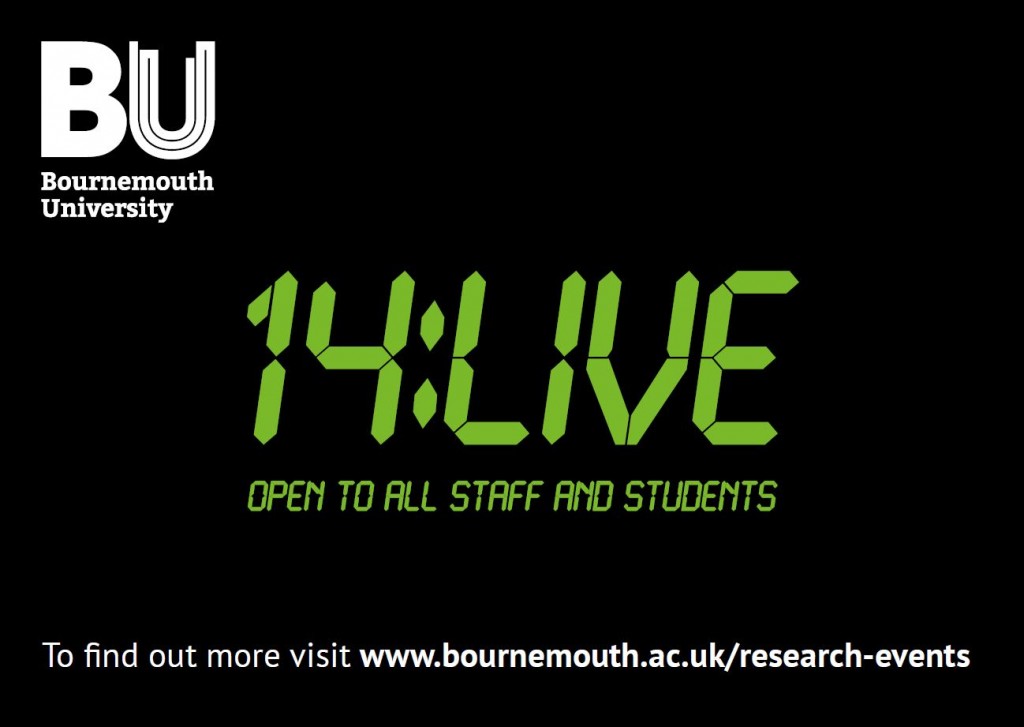
The Faculty of Media and Communication at BU
Venue: CG17, Christchurch House, Talbot Campus, Bournemouth University, Fern Barrow, Poole, Dorset, BH12 5BB
Wednesday 2 March 2016, 4pm, CG17
Promotional Cultures & Communication Centre (PCCC)
Guest Lecture
Professor Fleura Bhardi,
Conceptualizing Consumption in Late Modernity: Liquid Consumption
Professor Bhardi introduces the concept of liquid consumption, a style of consumption characterized by a lack of singularization, ephemerality, the dominance of use-value, and dematerialization. This concept helps unpack contemporary consumption phenomena emerging in the current context of liquid modernity, where social structures, and resulting consumer identities, are liquidifying. Liquid consumption is in contrast to a solid perspective of consumption, constituted in the former industrial modern society, when many of our seminal consumer behaviour constructs were developed. She outlines the implications of liquid consumption for four major consumer research domains: consumer attachment, consumer and brand relationships, social distinction, and consumer ethics. We observe a shift in what is valued under conditions of liquidity: flexibility, lightness and access. An agenda for future research focusing on these new sources of value is outlined.
Fleura Bardhi is a Professor of Marketing at Cass Business School, City University London, UK. Fleura has a Ph.D. from the University of Nebraska-Lincoln, USA, a MSc in International Business from Norwegian School of Management, Norway, and a B.A. in Management from University of Tirana, Albania. Prior to joining Cass Business School, Fleura was an associate professor at Northeastern University, Boston, USA. Fleura’s research falls into consumer behavior, specifically consumer culture theory (CCT). Methodologically, Fleura is a qualitative researcher and utilizes qualitative interviews, ethnography, observations, and projective techniques in her research.
Her research interests are in three areas: 1) Global Brands and Global Consumers: Fleura’s research examines how the role of materiality and brands changes when we travel or in conditions of a global nomadic lifestyle. This work unpacks the ways globalization has shaped our identities, relationship to places, and consumption tastes.
2) Access Based Consumption and Sharing: This stream of research examines how we consume differently when we do not purchase or own things, but rather access them through the market (via traditional rental, peer-to-peer rental, or market mediated sharing) or outside the market (via public services or peer-to-peer sharing and borrowing). Her research has implications about the notions of collaborative consumption and the sharing economy.
3) Life transitions and Consumption: This research examines how we manage the challenges associated with life transitions including divorce, relocation, migration, and long-distant families, through consumption as well as the role of the marketplace in such life transitions. A current project is looking at how single mothers manage downward social mobility post-divorce or family separation. Fleura teaches at the undergraduate and graduate and postgraduate level programs. Her teaching interest includes modules in Consumer Behavior, Qualitative Market Research, Consumer Insights, and Consumer Culture Theory.
Fleura’s work has been published in Journal of Consumer Research, Harvard Business Review, Sloan Management Review, International Marketing Review, Consumption, Markets & Culture, Psychology and Marketing, Journal of Consumer Behaviour, etc. She has presented her work at numerous international and national conferences. Fleura is a member of the Editorial Review Board for Journal of Consumer Research, Consumption, Markets, & Culture journal, Mercati & Competitività, and a Board Member for the International Society for Markets and Development (ISMD) (2012-2014). She has co-chairs twice the Consumer Culture Theory PhD Workshop (2011, 2013) and has been invited as a faculty mentor at several methodology and theory related PhD Workshops. Her work has received attention and cited in the Wall Street Journal, The Financial Times, The Economist, The Guardian, Boston Globe, etc. She has also been a visiting professor at Schulich School of Business, York University, Toronto, Canada; University of Sydney, Australia; and California State University, Long Beach, US.
About the series
This new seminar series showcases current research across different disciplines and approaches within the Faculty of Media and Communication at BU. The research seminars include invited speakers in the fields of journalism, politics, narrative studies, media, communication and marketing studies. The aim is to celebrate the diversity of research across departments in the faculty and also generate dialogue and discussion between those areas of research.
Contributions include speakers on behalf of
The Centre for Politics and Media Research
The Centre for the Study of Journalism, Culture and Community
Promotional Cultures & Communication Centre
Public Relations Research Centre
Narrative Research Group
Journalism Research Group
Advances in Media Management Research Group
The EBC hosted the first in a series of ‘Meet the Entrepreneur’ events on Wednesday 24th February.
The series kicked off by profiling local entrepreneur, Arabella Lewis-Smith, founder of digital agency, Salad Creative.
Jointly founding Salad in 2001 – aged 26 and with a background in fashion – Bella is living proof that, starting with just passion and a creative spark, anything is possible. The classic entrepreneurial success story, Salad has grown from humble beginnings to the award-winning agency it is today, with a team of 13 and working with the likes of Hall & Woodhouse, Olives et Al, Salomon and the Clipper Round the World Yacht Race.
Alongside Salad, Bella was instrumental in the launch in 2007 of another venture, Pasture Naturals – which has since shown significant growth and established itself in the luxury washroom product market.
The event attracted students from across a broad range of interests covering business, marketing and enterprise.
Organised by Mark Painter, Business Development Manager for The Business School, this series of events aim to provide students and staff the opportunity to hear about the personal journey of the profiled entrepreneur, learn about their experiences as a business owner and their approach to founding and growing a successful business.
Mark Painter commented, ‘this was an excellent way to launch this series of events. Our students clearly enjoyed hearing about Bella’s personal journey and Bella gave us all plenty to think about in terms of our own personal goals and ambitions’. Mark added, ‘I was particularly pleased to see students from the BU International College in the audience, and I hope to see them again at our future events’.
The next event in this series will be on Wednesday 2nd March and will profile Peter Czapp, founder of the The Wow Company. For more information and to book a place, students and staff should follow the link to www.bucfe.com/events
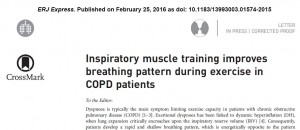 FHSS Professor Alison McConnell just published her latest paper ‘Inspiratory muscle training improves breathing pattern during exercise in COPD patients’ with her international co-authors from Belgium and Thailand. The paper concludes that the addition of inspiratory muscle training to a pulmonary rehabilitation programme in COPD (chronic obstructive pulmonary disease) patients with inspiratory muscle weakness resulted in a deeper and slower breathing pattern during exercise. Patients could achieve significantly higher peak work rate and exercise ventilation without increasing dyspnoea sensation.
FHSS Professor Alison McConnell just published her latest paper ‘Inspiratory muscle training improves breathing pattern during exercise in COPD patients’ with her international co-authors from Belgium and Thailand. The paper concludes that the addition of inspiratory muscle training to a pulmonary rehabilitation programme in COPD (chronic obstructive pulmonary disease) patients with inspiratory muscle weakness resulted in a deeper and slower breathing pattern during exercise. Patients could achieve significantly higher peak work rate and exercise ventilation without increasing dyspnoea sensation.
Prof. McConnell is also author of Breathe Strong, Perform Better as well as Respiratory Muscle Training: Theory & Practice.
Congratultions,
Prof. Edwin van Teijlingen
CMMPH
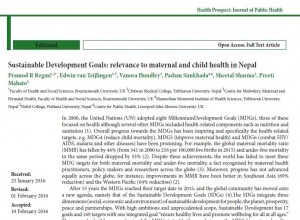
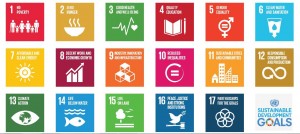 Since late 2015 the world strives to achieve towards the Sustainable Development Goals (SDG). The SDGs bring together the social, economic and environmental aspects of development. There are 17 SDGs sub-divided into 169 targets. One of these 17 goals focuses specifically on health, namely to “ensure healthy lives and promote wellbeing for all at all age”. SDG devotes 13 health-related targets to diverse population health and wellbeing issues including maternal and child health, communicable disease including HIV, non-communicable diseases, substance use, traffic accidents, universal access to sexual and reproductive health, and sanitation.
Since late 2015 the world strives to achieve towards the Sustainable Development Goals (SDG). The SDGs bring together the social, economic and environmental aspects of development. There are 17 SDGs sub-divided into 169 targets. One of these 17 goals focuses specifically on health, namely to “ensure healthy lives and promote wellbeing for all at all age”. SDG devotes 13 health-related targets to diverse population health and wellbeing issues including maternal and child health, communicable disease including HIV, non-communicable diseases, substance use, traffic accidents, universal access to sexual and reproductive health, and sanitation.
Nepal is one of the many countries that have signed up to the SDGs. This week BU researchers Dr. Pramod Regmi, Prof. Vanora Hundley, Prof. Edwin van Teijlingen, FHSS, PhD students Sheetal Sharma and Preeti Mahato, and BU Visiting Faculty Prof. Padam Simkhada (Liverpool John Moores University) published an editorial under the title ‘Sustainable Development Goals: relevance to maternal & child health in Nepal’ [1]. This editorial written by health researchers working in Nepal highlights some of the weaknesses in the country’s health care system. These key problems include the persistence of inequalities in health and the limited access to health services and the low uptake of care in many poorer populations especially in the more remote rural regions. For instance, only about one in nine of the poorest women deliver their babies with the aid of a skilled birth attendant (SBA), whilst 81.5% for the richest women benefit form a SBA. Therefore, this editorial stresses the need for a continuum of health care services to be available across the country and for all sections of the society. Moreover, we can only assess whether a country has reached all or any of the SDGs if there is systematic monitoring and regular review of interventions at all levels. Hence, Nepal should develop measureable and time-bond indicators to track its progress towards the SDGs. The country will need support from development partners in both its attempts to achieve the SDGs as well when it tries to collect and analysis data to assess its progress.
Prof. Edwin van Teijlingn
CMMPH
Reference:
The BU Fair Access Research (FAR) project is an innovative project which seeks to make a difference to students by transforming practice through collaborative research.

We are co-creating research with students and practitioners (both professional and academic) as part of the university’s commitments to widening participation to higher education. We want to make a sustainable difference to students accessing, succeeding and progressing through university by undertaking co-creative research to transform practice.
Our approach to fair access research centres on learning together with students, colleagues from different academic and professional backgrounds and with stakeholders from across the higher education sector. By learning together we aim to:
Our research is concerned with process, with ways of thinking about and doing widening participation research to change behaviour within BU and beyond. Through learning together, our practice-led research will shape new understandings and changes in policy and practice for fair access to higher education. This Fair Access Research strategy aligns with Bournemouth University’s commitment to a fusion of research, education, and professional practice.
What we’re doing:
In addition to analysing data focusing on retention and attainment, some of the work we’re doing at the moment includes:
The challenges facing widening participation are complex, educational disadvantage exists in a world where inequalities intersect and hierarchies are entrenched. We know that “without equity in education, inequality in society is reinforced and perpetuated”.
We can find ways to make participation in higher education more equitable if we harness our collective expertise and experiences.
We want to learn from and with you to support underrepresented and marginalised learners across the whole learning journey (from outreach through to graduation and beyond).
The Fair Access Research project is a catalyst to create a community of practice. If you are doing any work in this area, want to share ideas, test findings, evaluate interventions or embed social justice into your teaching and learning, get in touch!
For more information about the Fair Access Research project and to share your ideas, please email the Principal Investigators, Dr Vanessa Heaslip (vheaslip@bournemouth.ac.uk) and Dr Clive Hunt (chunt@bournemouth.ac.uk).
BU are working towards becoming a dementia-friendly university: http://blogs.bournemouth.ac.uk/research/2016/02/17/bu-working-towards-becoming-a-dementia-friendly-university/
As part of this work we are running a number of dementia awareness sessions for staff:
| Thursday 25th February 2016 | 13:00-14:00 | Talbot Campus | |
| Thursday 17th March 2016 | 13:00-14:00 | Lansdowne Campus | |
| Monday 25th April 2016 | 14:00-15:00 | Lansdowne Campus | |
| Wednesday 25th May 2016 | 13:00-14:00 | Talbot Campus | |
| Monday 20th June 2016 | 10:00-11:00 | Talbot Campus |
Sign up for a session here: https://staffintranet.bournemouth.ac.uk/workingatbu/staffdevelopmentandengagement/ddeevents/budementiaawarenesssession/